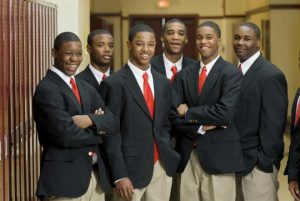 Richard Whitmire, a former newspaper reporter who now runs a non-profit education news site, wrote an op-ed for The Hill about charter schools.
Richard Whitmire, a former newspaper reporter who now runs a non-profit education news site, wrote an op-ed for The Hill about charter schools.
Based on the findings of his site’s research project, Whitmire has some advise for Congress (emphases added):
Most big changes in society take place slowly, and that’s probably for the best. But here’s a change that members of Congress should urge their state education leaders to act on quickly: Start collaborating with top charter networks on college success.
…
As our research project at The Alumni reveals, the alumni of the big charter networks including KIPP, Uncommon Schools and YES Prep are earning four-year degrees at rates as high as five times as their counterparts in traditional schools. Even the lower performing networks produce college graduates at twice the rate.Nationally, only 9 percent of the students growing up in families in the lowest income quartile end up with college degrees (compared to nearly 80 percent of the students from the high income families) by age 24. And yet in places such as Uncommon Schools in Newark, the North Star Academy Charter School draws students from that city’s high poverty neighborhoods and turns half of them into earners of four-year college degrees. At KIPP Public Charter Schools in New York, 46 percent earn those degrees. At YES Prep in Houston, 47 percent end up with four-year degrees within six years of leaving a YES Prep high school.
One would think the NAACP and others in the civil rights industry would appreciate freedom and choice and support charter schools. But the NAACP wants to suspend charter school expansion and joined a teachers union’s lawsuit to stop a scholarship program in Florida that helps low-income students.
Whitemire wrote that students with GPAs 3.0 or higher are four times as likely to earn college degrees. Big charter school networks that include KIPP found that the same skills used to raise GPAs and SAT scores are the same skills needed to do well in college. And teaching students in a way that makes the coursework “sticky” helps.
That’s just a taste of what they’ve learned, and some networks are willing to share more than lessons-learned. In the Arkansas Delta, KIPP shares college counseling resources with two neighboring high schools.
Some of the most promising are the digital innovations underway at several of the networks. As the number of charter school alumni expands exponentially, keeping track of them the old fashioned way, personal contact, will prove to be near impossible — a dilemma traditional high schools already face should they take on this task.
The NAACP and teachers unions are fighting this choice. Why not support charter schools and give them a chance to help children and offer low-income parents alternatives?
Photo credit: By Jbak87 – Own work, CC BY-SA 3.0, Wikimedia Commons
 CURE News and Clergy Blog News and Commentary for Christians
CURE News and Clergy Blog News and Commentary for Christians



